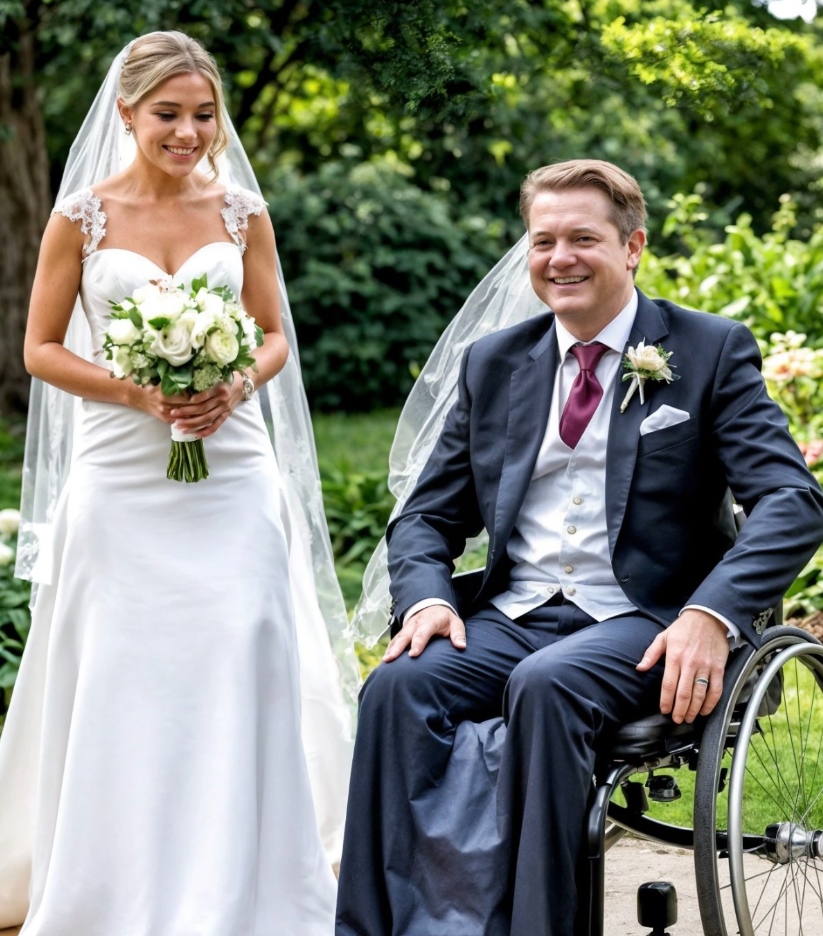When Sofia announced she was marrying a man with a disability, the room fell silent. Her family was stunned, her friends speechless, and distant relatives gathered as though a national crisis had struck. Everyone believed it was their responsibility to intervene. “You’re throwing your life away,” “You can do better,” “What will people think?” — the objections came from every direction.
But Sofia, a 27-year-old pharmacist with honors and offers from top clinics across the country, stood firm. After a lifetime of chasing approval and following the rules, she was finally choosing not what was expected, but what was true. And her truth was Daniil — a man in a wheelchair, someone the world pitied but never truly saw.
Not long ago, Daniil was someone to look up to. A coach, athlete, leader of youth projects. Everyone involved in track and field knew his name. But one accident changed his fate. He was returning home when a drunk driver crashed into his car. Daniil survived but lost the ability to walk. The doctors were firm: spinal cord injury — irreversible.
From that day, his life split into “before” and “after.” Instead of training — rehabilitation. Instead of the stands — the silence of hospital corridors. He stopped answering calls, disappeared from society, withdrew into himself. He smiled only out of habit, and at night, as center staff said, he cried as if he had gone back to the moment he heard the diagnosis.
Sofia came to that very center as a volunteer — through a university internship program. At first, she resisted, argued with the coordinator, but eventually agreed. It was there, in the garden, that she first saw Daniil — alone, with a book on his lap, seemingly cut off from the world.
“Hello,” she greeted him. He did not respond.
The next day she returned. Again, he was silent.
But something in that silence caught her. Something in his gaze, his loneliness, in the depth of pain he did not hide. One day she just sat down beside him and quietly said:
“You don’t have to speak. I’ll stay anyway.”
And she stayed. Day after day. Sometimes silently. Sometimes reading favorite poems aloud. Gradually, he began to open up — first with his eyes, then a smile, then short remarks. And then — conversations. A bond formed between them, much deeper than simple attraction.
She learned that he wrote poetry, that he had long dreamed of publishing a collection of stories, that he loved jazz and missed dancing the most. And he realized that before him was not just a bright mind and a beautiful girl — but a person with inner strength, capable of accepting not only his body but his pain.


